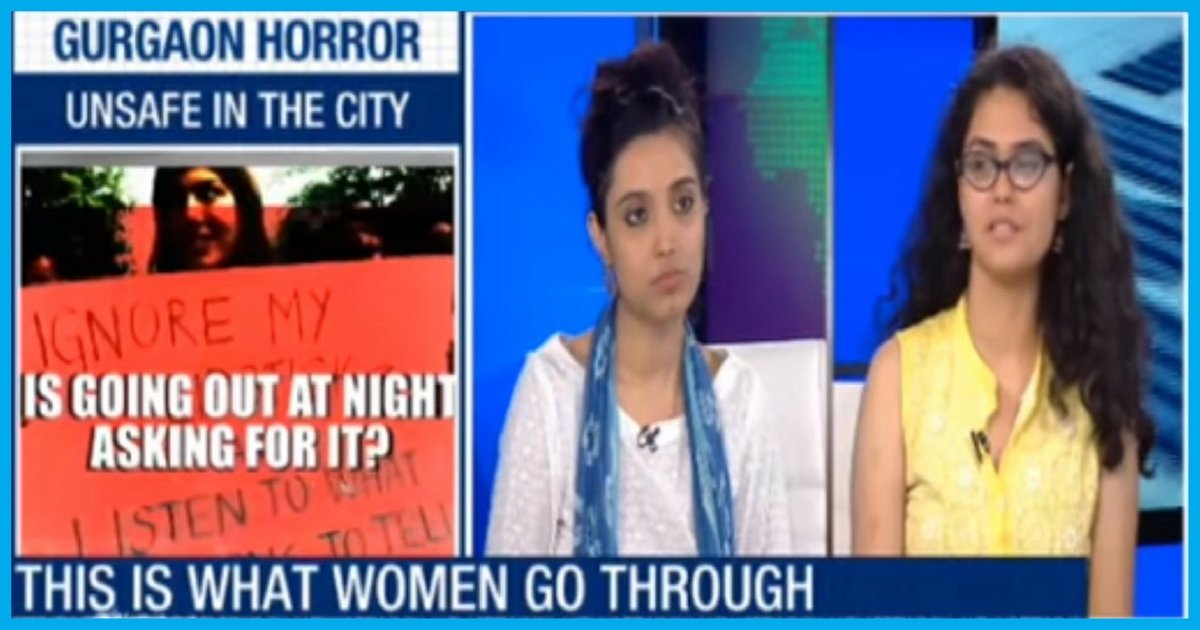
These Gurugram Molestation Survivors Share Their Opinion On Rape Culture, Society And Patriarchy
27 Jun 2017 10:33 AM GMT
On 16 June, two women from Gurugram wanted to get a few drinks after exams, only to be molested, cat-called as sex workers and groped. Such incidents pose an inevitable question, Is Going Out At Night Asking For It? On Wednesday CNN-News18 held a discussion with Saba and Adya, the survivors, on the harrowing experience of that night and how can such an incident unravel the various facets of patriarchy.
This video talks about aspects which are often overlooked by many. For example, they don’t limit themselves only in recalling the traumatic experience, and they point out at the presence of rape culture within the folds of patriarchy. It’s women who negotiate cat-calls, being stared at and violent misogyny right after the sunset. Why would questions like “how much do you charge?” seep in the context when women venture out at night on the streets?
Elitism
Elitism is one of the primary points they have touched upon during the discussion. Getting justice for a woman who is not Dalit or a Muslim is easier, is what she says. Adya hints at hierarchical elitism where being a part of the minority or the lack of a privileged footing in the societal structure affects how justice will be meted out to the victim. “They don’t get a hashtag devoted to them, whereas we are sitting here in this studio, having all that”, she said.
Culture of Silence
This discussion is important because the two women speak up about their experience on a public forum. Gathering the courage to open up about an experience is often impossible for many of us, thereby we gradually add on to the ‘culture of silence and shame’. The fact that Saba and Adya are opening up about their experience is unlearning the culture of silence and successfully creating a dent on the ‘culture of silence’ surrounding the rape and molestation, therefore empowering other women to talk about it further. The culture of silence on the other hand also negates the power of privilege, as Saba says, “I was ashamed of telling my parents, they got to know about it from the news.”
Public spaces are not free of gender violence
The incident took place in MG Road, a busy area of the city. There were ice-cream vendors and auto-drivers who chose to be mute witnesses and cars rolled down their windows only to grab their share of fun at the cost of these women. An auto-driver even laughed as one of the women were being groped. The underlying dastardly aspect is how no one seems to bat an eyelid as two women are facing severe gender violence
Apart from these, another valid point they have raised is the prevalent discourse about sex workers. Since the women were out on the street at night, they can be called sex workers and agency over their body is not taken into consideration by virtue of their profession. Adya also refers to the ‘rape clock’, a thought implanted in our minds that a woman is not supposed to be out of their house after a certain point in time. The problem here, as Saba says, “It is not caste or class. It is patriarchy which needs to be battled against.” They point out at staring being “normalised” and how women have internalised it. Women coming out and speaking about the issue is just the beginning of a long battle against patriarchy which women have to fight themselves.
 All section
All section













